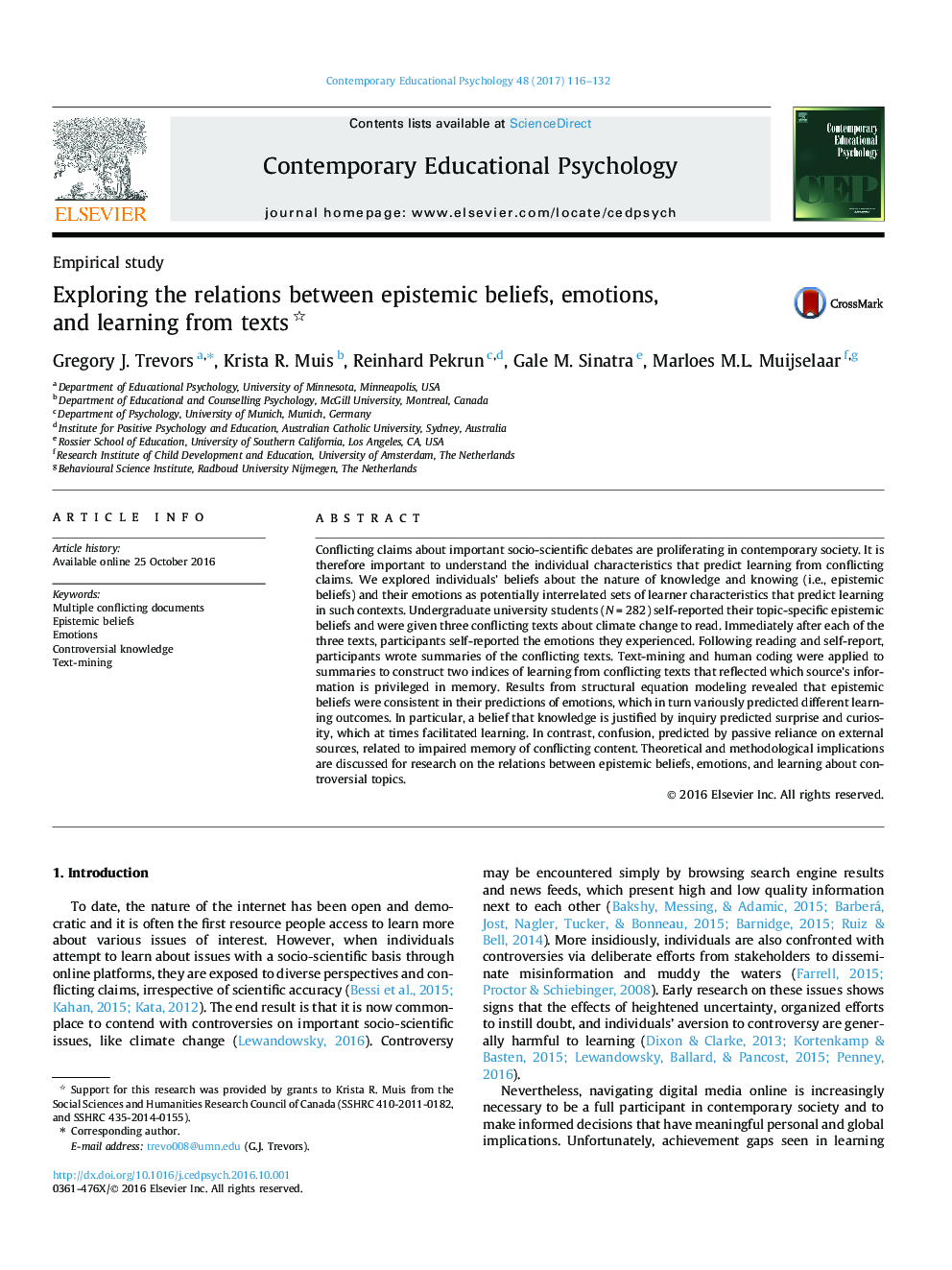| کد مقاله | کد نشریه | سال انتشار | مقاله انگلیسی | نسخه تمام متن |
|---|---|---|---|---|
| 4937927 | 1434671 | 2017 | 17 صفحه PDF | دانلود رایگان |
- Mediation was examined between epistemic beliefs and emotions on learning from texts.
- Topic- and text-specific epistemic beliefs and emotions were reported.
- Text-mining and human coding were applied to summaries to assess learning.
- Structural equation modeling showed epistemic beliefs predicted emotions.
- Surprise, curiosity, confusion differently predicted learning from conflicting sources.
Conflicting claims about important socio-scientific debates are proliferating in contemporary society. It is therefore important to understand the individual characteristics that predict learning from conflicting claims. We explored individuals' beliefs about the nature of knowledge and knowing (i.e., epistemic beliefs) and their emotions as potentially interrelated sets of learner characteristics that predict learning in such contexts. Undergraduate university students (NÂ =Â 282) self-reported their topic-specific epistemic beliefs and were given three conflicting texts about climate change to read. Immediately after each of the three texts, participants self-reported the emotions they experienced. Following reading and self-report, participants wrote summaries of the conflicting texts. Text-mining and human coding were applied to summaries to construct two indices of learning from conflicting texts that reflected which source's information is privileged in memory. Results from structural equation modeling revealed that epistemic beliefs were consistent in their predictions of emotions, which in turn variously predicted different learning outcomes. In particular, a belief that knowledge is justified by inquiry predicted surprise and curiosity, which at times facilitated learning. In contrast, confusion, predicted by passive reliance on external sources, related to impaired memory of conflicting content. Theoretical and methodological implications are discussed for research on the relations between epistemic beliefs, emotions, and learning about controversial topics.
Journal: Contemporary Educational Psychology - Volume 48, January 2017, Pages 116-132
